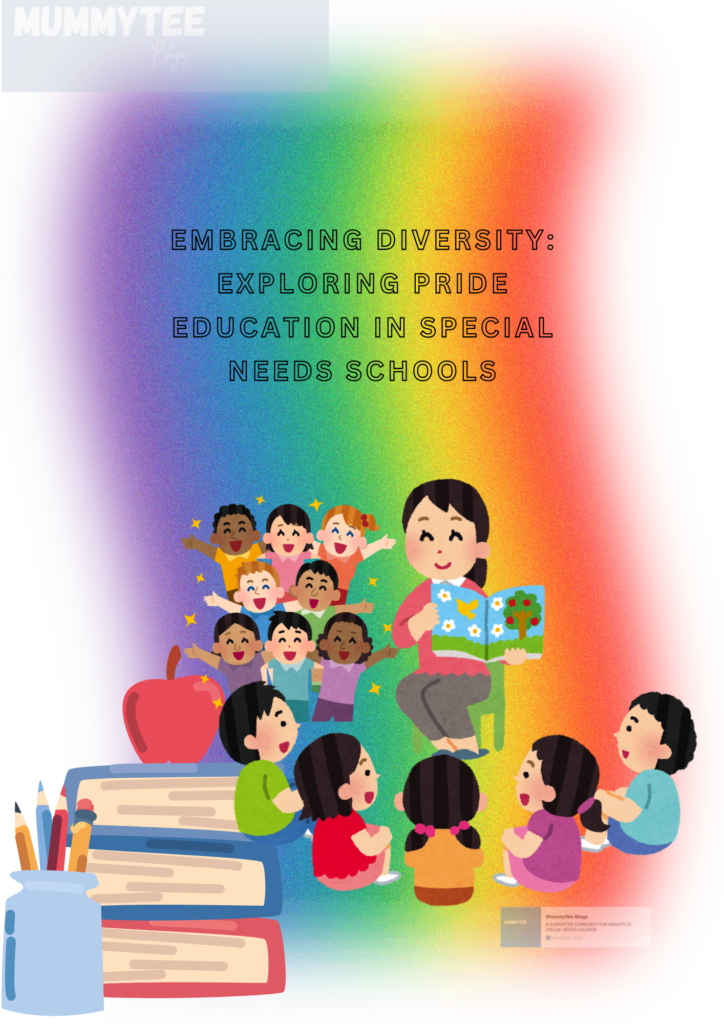
I recently noticed a subtle yet significant change at my son’s school: the once-visible celebration of pride, with its vibrant colors and messages of inclusivity, had quietly faded away. When my son first started at the school, pride colors adorned the hallways, and discussions about diversity were a regular part of the curriculum. But now, it seems these efforts have been significantly dialed back.
It’s hard not to speculate on the reasons behind this shift. From what I’ve gathered through whispers and rumors, it appears that some parents may have voiced their concerns, possibly leading the school to reconsider its approach. One parent’s comment that particularly stuck with me was, “they’re confused enough,” implying that the inclusion of pride education might add to the confusion for special needs students. However, this decision was never formally addressed or explained by the school; it simply seemed to fade out over time.
Parents’ Perspectives on Pride Education in Special Needs Schools
In recent years, the discussion around pride education in schools has gained significant attention. This topic becomes even more nuanced when considering special needs children. As parents, their primary concern is the well-being and development of their children, making their opinions crucial in shaping educational approaches. Here, we delve into various perspectives parents may hold regarding pride education in special needs schools.
The Case for Inclusivity and Representation
Many parents see the value in teaching pride education as a means to promote inclusivity and representation. For these parents, pride education is not just about celebrating LGBTQ+ identities, but about fostering an environment where diversity in all forms is embraced. They believe that promoting self-acceptance is crucial for their children’s social and emotional development. Additionally, exposure to diverse identities can help children develop empathy and respect for others, potentially reducing instances of bullying and discrimination. Schools that actively teach pride are often seen as safer and more supportive environments, where all students feel valued and included.
Concerns About Age Appropriateness and Relevance
Conversely, some parents express concerns about the appropriateness and relevance of pride education for their special needs children. These concerns often revolve around developmental readiness, fearing that their children might not yet be able to fully grasp the concepts involved. Additionally, many parents feel that the limited time in school should be devoted to essential academic and life skills, especially given the additional challenges their children face. Some parents’ personal or cultural beliefs may not align with the teachings of pride education, preferring to address such topics at home where they have more control over the context and content.
Finding a Balance: Tailored and Sensitive Approaches
Addressing these differing viewpoints requires a balanced and tailored approach. Schools can work to ensure that pride education is adapted to meet the needs of special needs students. This may involve developing a customized curriculum that uses simplified language, visual aids, and hands-on activities to make the material accessible and understandable. Engaging parents in the development and implementation of the curriculum is crucial, allowing schools to address concerns and incorporate feedback to ensure the content is respectful and appropriate. Moreover, training educators to handle these topics with sensitivity and care is essential. Teachers should be equipped with the skills to discuss pride in a way that is inclusive and supportive, while being mindful of the diverse needs of their students.
Join the Conversation: We believe in fostering a supportive educational environment for all children. Share your thoughts on pride education in special needs schools and how we can better support diversity. Together, let’s create inclusive spaces where every child feels accepted and empowered.
Feel free to leave your comments below or reach out to us directly. Your voice matters!
MummyTee Blogs x
